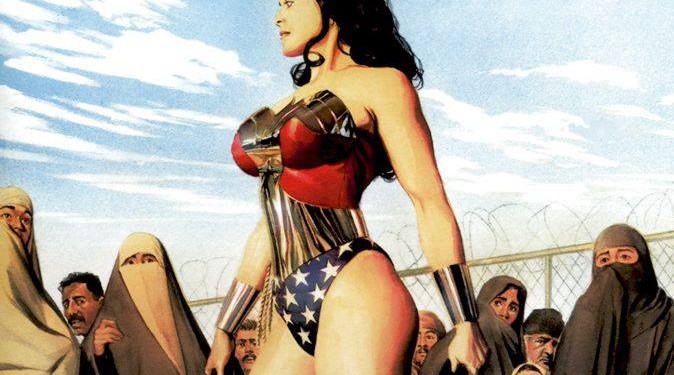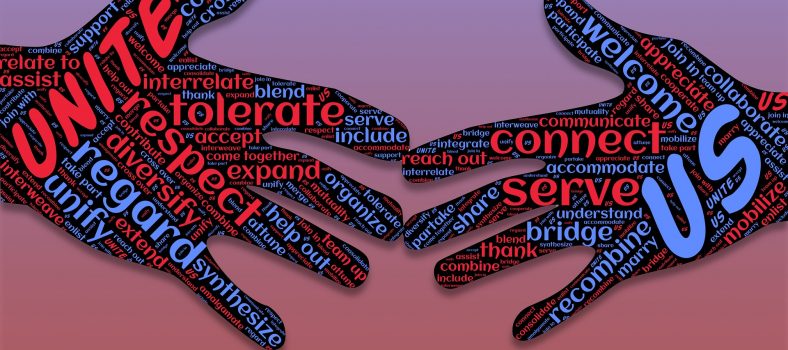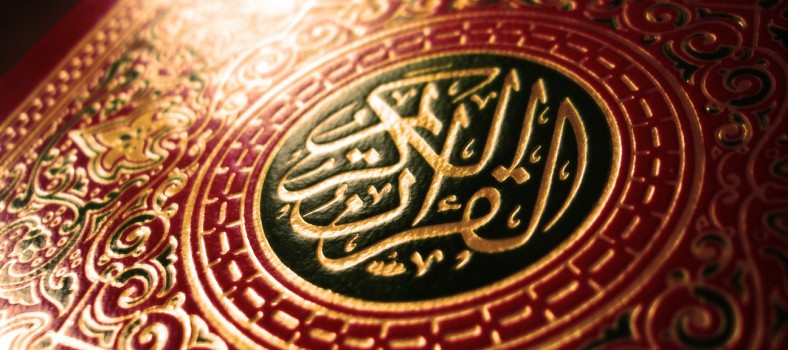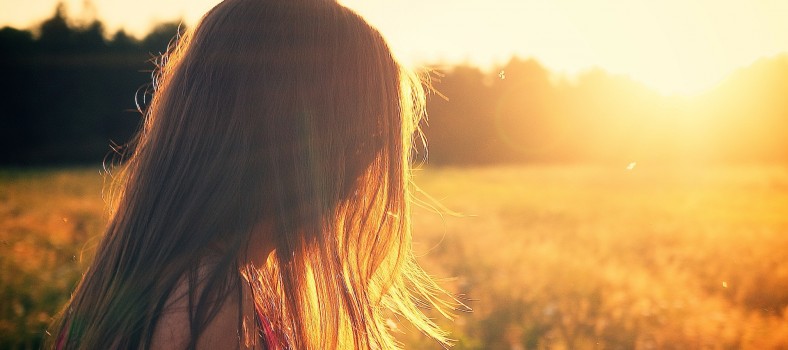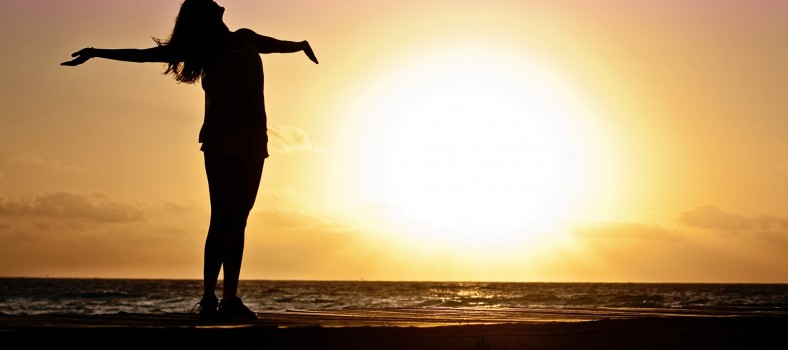My ‘Hijrah’ towards Humanism
It all started with a question I asked my mother one December evening. “Ma, why don’t we celebrate Christmas and decorate our house with mistletoes and Christmas trees?” I was five then, and that was when my childhood religious indoctrination started. Never did I predict that I was about to go on a long, mental and emotional roller-coaster by just asking that question. “We are Muslims. We don’t worship Jesus, we worship Allah.” The very next day, my mother brought me to our local library and bookstore, and introduced me to Islamic books. From as young as three, I was able to recite from memory the 5 Kalimahs and a few short surahs (chapters) from the Quran, even though I had the faintest idea what they mean. I was told Islamic stories about the various prophets and messengers, particularly stories about the life of Muhammad, in bed time. This is the tender age where I accepted everything my parents and family elders said without and question. Like any other child, I never thought that they could be wrong.
Throughout elementary school, I was not a devout Muslim. I didn’t give much thought or attention to the religion. I ensured that I adhered to the 5 pillars of Islam, but I didn’t bother going any further than that. My parents ensured that I prayed, kept my fast and learned how to read the Qur’an. I started praying when I was 9 and I first wore the hijab when I was 11. In fact, my parents were reluctant to let me wear the hijab at such a young age and I had to beg and insist that I do my duty. I was so excited when they finally agreed! I could finally wear my hijab like my mother and the rest of my aunts.
I was in high school when fundamentalism crept into my thoughts. I vividly recall the day when my friend, who was an Ustazah (teacher) at a Sunday Madarasah, started to talk to me about the Day of Judgement. As we were leaving the mosque after offering our Asar prayers, she described all the signs of that so-called “Last Day” and explained about Heaven and Hell. This was the first time I had given a lot of attention to it. Believing in an afterlife is one of the six pillars of faith of Islam. As she described the brutality of Hell and its punishments, terror gripped my heart and I was filled with guilt and remorse. Although I did adhere to Islam, I was very careless and lenient about it. I thought that I have earned the wrath of Allah and that I was going to be one of the inmates of Hell. I had so little time left to seek tawbah (repentance for sins) and prepare for the afterlife. I was literally shivering with fright on my way back home that day.
From then on, I made conscious effort to perfect my deen (religion), iman (faith) and ihsan (excellence of faith). I memorized and learnt the various surahs, duas and hadiths by heart. I made effort to pray all the prayers on time. I also started praying extra, non obligatory prayers, specifically the Tahajjud. I was very conscious about the presence of Allah every moment of my life. I feared and revered him. As time progressed, I grew love and fondness for Allah, his messenger Muhammad, and Islam. My passion pushed me to be involved in numerous projects and activities that gave me new experience. I became an ustazah at a madrasah, where I taught Islam to children aged 4 to 9 years old. I took part in many Islamic competitions and I would usually clinch the first few prizes. I excelled at Quran memorization and Quran recitation. But even as a staunch Muslim, I had a spark of humanism in me. I couldn’t bear to watch the entire world going to hell and so, I was determined to convert everyone to Islam. So I took part in many Dawah programmes, and I would seek to clarify all the misunderstanding people had about Islam and I sought to paint a more positive and peaceful image of Islam. This often entailed my throwing the blame on the ‘Kaffir’ West or the Jews while absolving Muslims of all the blame. This was the time where I got political by getting myself into a tangle of conspiracy theories. 9/11 was an inside job and thus, Muslims are not at fault. The Jews and Zionists are inherently evil and subhuman, and thus, they are the enemies of Islam. The Illuminati wants to destroy Islam and thus, we need to wage a full-fledged jihad to protect Islam. I never ever thought that the problem could stem from religion itself because from young, I was taught to never criticize or question the system. In my view, the world was divided into Muslims and Non-Muslims, and Muslims were superior because they had the true and correct way of life.
I went into science stream in my senior years, and that was when I started reading up on creation science – how every ‘creation’ is a testimony of God’s greatness and how every riddle in the universe is a sign of God’s wisdom and man’s weakness to comprehend. Even though the Theory of Evolution was taught extensively in my school, I completely ignored it. Instead, I would listen to the Islamic theologians debunking evolution and reasserting the validity of creation science. I hadn’t the faintest idea what evolution was about and yet, I had a preconceived notion that anything that goes against god must automatically be false. Again, this was due to my upbringing where everything about must be accepted without any criticism. Only the clergymen were allowed to analyse the religion, because they have some special knowledge that the “common people” don’t.
After completing high school, I had a long break and I had so much time in my hands. As a good Muslim girl, I decided to learn more about Islam, namely the Fiqh (Islamic jurisdiction) and more importantly, the central message of Islam. I read many books and talked to various scholars. I also joined Muslim women support groups, attended camps, read and researched on the religion. And for the first time in my life, I found myself reading the English translations of the Quran. It all went well at first, until a Muslim woman posted an Islamic article about why women have to give in to their husband’s sexual whims as and when they demand it. The article quoted Quranic verses and Hadith to justify this. I couldn’t take that. That is marital rape! I was puzzled, but I continued to research further. Later on, I attended a sermon where the Imam was talking about female subservience to her husband. He too, quoted Quran and Hadith to substantiate his points. I read the Quran again with the open eyes. That was when I saw the sexism in the religion. I saw ayats (verses) propogating violence against women, rape apologia, male privilege, and the stripping away of women’s body autonomy and choice. I researched high and low for a good explanation because I couldn’t handle the misogyny. It was blatant. There was absolutely no use of circumventing the translations of the various Qur’anic and Hadith texts as I understood the Arabic meaning itself. None of the Islamic scholars or friends or women or people could give me a good answer.
That left me sleepless for nights. I would literally cry every day because I was at a complete loss. In all this doubt and confusion, my list of burning questions increased everyday. How can the god I love so dearly have very little respect for me just because I have a vagina? Why is it that men don’t have to cover their faces? Why is it that men can take part in public life while women are relegated to the confines of home? Why can men take multiple wives, but women can’t take multiple husbands or even initiate divorce? Why is it that men get virgins in heaven while women are confined to their husbands only? Why is male sexuality celebrated while female sexuality is degraded? I couldn’t lose my passion for this religion, but at the same time, I could not compromise my respect towards women and girls. I did not want to be a gender traitor.
To solve this dilemma, I set out to find other plausible interpretations of Islam that could support my world view, and so I left the Sunni school of thought and became a Quranist. Quranism is a branch of Islam that relies solely on the Quran and rejects other texts, especially the Hadith. There are many variations within Quranism. I was part of the Aastana group, who believe that “the moral code contained within the Quran correlates to the workings of a socio-economic system that provides nourishment and security to a society that implement its laws. The Quran is a practical guide, which is beneficial for all; a form of governance to protect mankind in all matters and standards of life.” At that time, Quranism seemed to be the most authentic source of Islam to me because I found many contradictions within Hadith and other narratives. Quranism stems from the premise that Quran is perfect, accurate and authentic in its entirety. This claim later became dubious to me as I found multiple contradictions within the Quranic texts. Moreover, I feel that Quranism heavily relies on conspiracy theories. With so many differing viewpoints and very little methods to verify the information presented within the circle of Quranists, it gets very frustrating because you find it difficult to differentiate truth from lies.
As I continued to research on religion and philosophy, I finally found an ideology that perfectly suited my worldview, and that is humanism, the idea that humans are capable of much more than that of what is “divinely sanctioned” by other ideologies. My god centred image of the world gave way to human centred concepts. I learned to love and celebrate the achievements of humanity, and to work towards the betterment of humanity. This is why I take pride in calling myself a humanist and a human rights advocate. I developed an interest in classical philosophy, in antiquity, in literature and of course, science. I learned to value people above ideas, humanity before ideologies. My world expanded. I finally tasted the breath of fresh air as the mental shackles were lifted and my mind could wander without fear of punishment.
My mother and father are both active participants and activists in and for the Islamic community. My mother teaches in a local Sunday school that I used to teach when I was a Muslim, while my father is a member of a Muslim Majlis (committee) that organizes sermons and activities for Muslims. Some of my uncles are loud, active Islamism ‘activists’, and they remind me of Zakir Naik and Hamza Tzortzis. They would go on missionary trips to various countries, especially South Asian countries, to evangelize Islam as well as Islamism. Although I share the same blood and flesh, my ideas are very different from theirs. I stand and fight to protect what my family members attempt to destroy in the name of moral righteousness. Although I am not physically free yet, since I am in the closet, I have reached the first milestone towards freedom, and that is mental freedom. I can think for myself without having to depend on so-called ‘scholars’ or Imams. In my mind, I can explore more thoughts and ideas, something my family would never dare to do. I know what it is to own my body and my thoughts, something the other women in my family have never had the privilege to have. I can proudly say that I am the first apostate in the entire generations of fundamentalists and so that makes me a little rebel in my own right.
[Follow me on Twitter @ChistaPantea]

